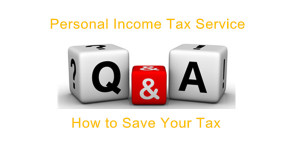 Do I have to file a personal income tax return?
Do I have to file a personal income tax return?
If you have to pay tax, you MUST file a return.
I have no income and don’t need to pay tax, why should I file my personal income tax return?
You should file your personal income tax return if you want to
- Get GST/HST credits. It is around $268/year for single person with no income. Check CRA website for more details.
- Get Ontario Trillium Benefits or Quebec Solidarity Tax Credits.
- Carry forward or transfer the unused part of your tuition, education, and textbook amounts.
How should I file and send my personal income tax return?
The most common ways are:
- EFILE. You can hire a tax professional to do your tax. If the tax professional is a registered Efile service provider, he can efile your tax to CRA.
- NETFILE. You can do your tax by yourself. If you use a certified software, you can send it electronically(Netfile).
- By Mail. You can mail your tax to CRA.
How can I save my tax?
There are two simple ways to save your income tax:
- Claim all of your tax credits.
- Maximum your tax deductions.
To maximum your tax saving, you should claim all your tax credits and deductions when you are doing your personal income tax.
What are tax credits and how to use them to save my tax?
In simple words, tax credits are the money you can get back or use to reduce your tax. There are two kinds of tax credits.
- Refundable tax credits can bring you tax refund, no matter you have to pay tax or not.
- Non-refundable tax credits can reduce your tax if you have to pay tax. However, if you don’t need to pay tax, non-refundable tax credits will not bring you tax refund.
Don’t forget to claim your tax credits when you are doing your personal income tax.
What are refundable tax credits available for me?
The common federal refundable tax credits and benefits are:
- GST/HST credit, which will be paid to you every 3 month.
- Working Income Tax Benefit
- Canada Child Tax Benefit
- Refundable Medical Expense Supplement up to $1,142.
The common provincial refundable tax credits and benefits are:
- Ontario Trillium Benefit including Ontario Sales Tax Credit, Ontario Energy and Property Tax Credit and Northern Ontario Energy Credit.
- Ontario Health Homes Renovation Tax Credit
- Quebec Solidarity Tax Credit
The amount of your tax refund is affected by your income. After you file your personal income tax return, you can see how much tax refund you can get.
What are non-refundable tax credits available for me?
There is a long list of Federal non-refundable tax credits and Ontario non-refundable tax credits.
Most common federal non-refundable tax credits include:
- Spouse amount
- Child amount
- Public transmit amount
- Child fitness amount
- Child art amount
- Home buyer’s amount
- Caregiver amount
- Disability amount
- Interest paid on your student loans
- Tuition amount
- Medical expenses
- Donations
Most Ontario non-refundable tax credits are similar to federal non-refundable tax credits. The rules for claiming these credits are the same as the rules for the federal tax credits.
What is tax deduction and how can it save my tax?
Tax deduction reduces your taxable income. You pay less tax because you lower your taxable income.
What can you deduct?
When you are filing your personal income tax, you have to know what you can deduct.
Most common tax deductions include:
- RRSP deduction
- Child care expense deduction
- Moving expense
- Support payment made
- Carrying charge and interest expense
- Other employment expense
[contact-form-7-custom-skin id=”1473″]

